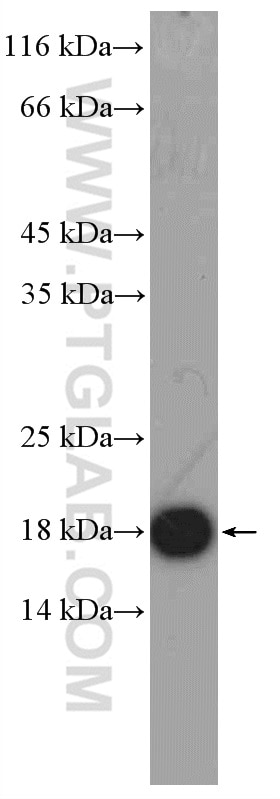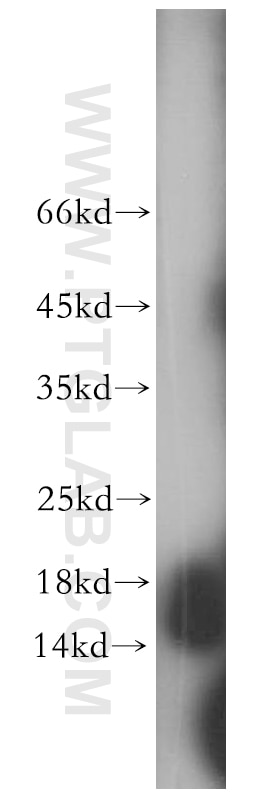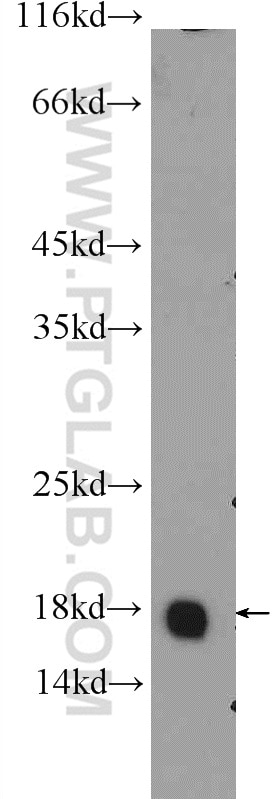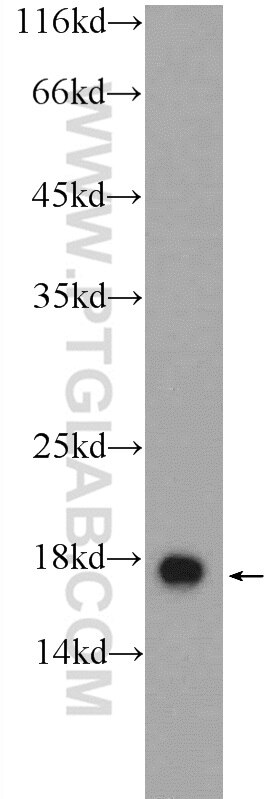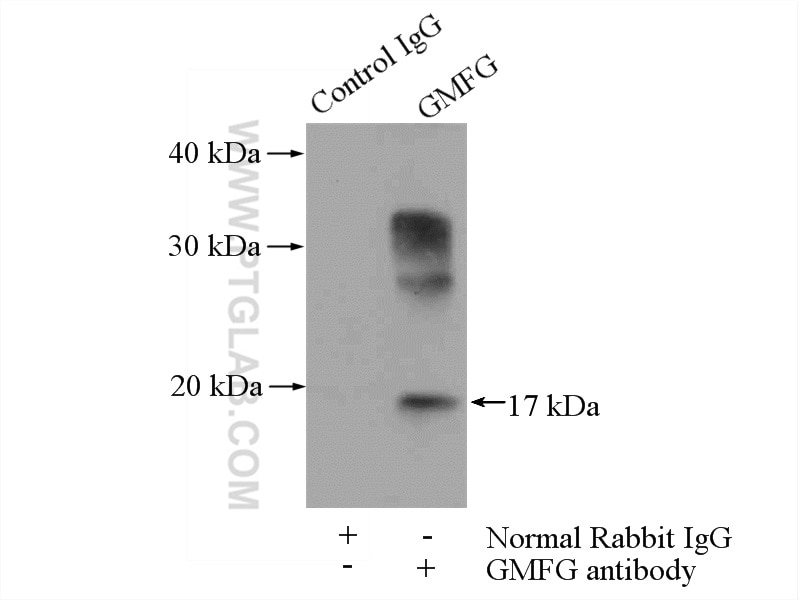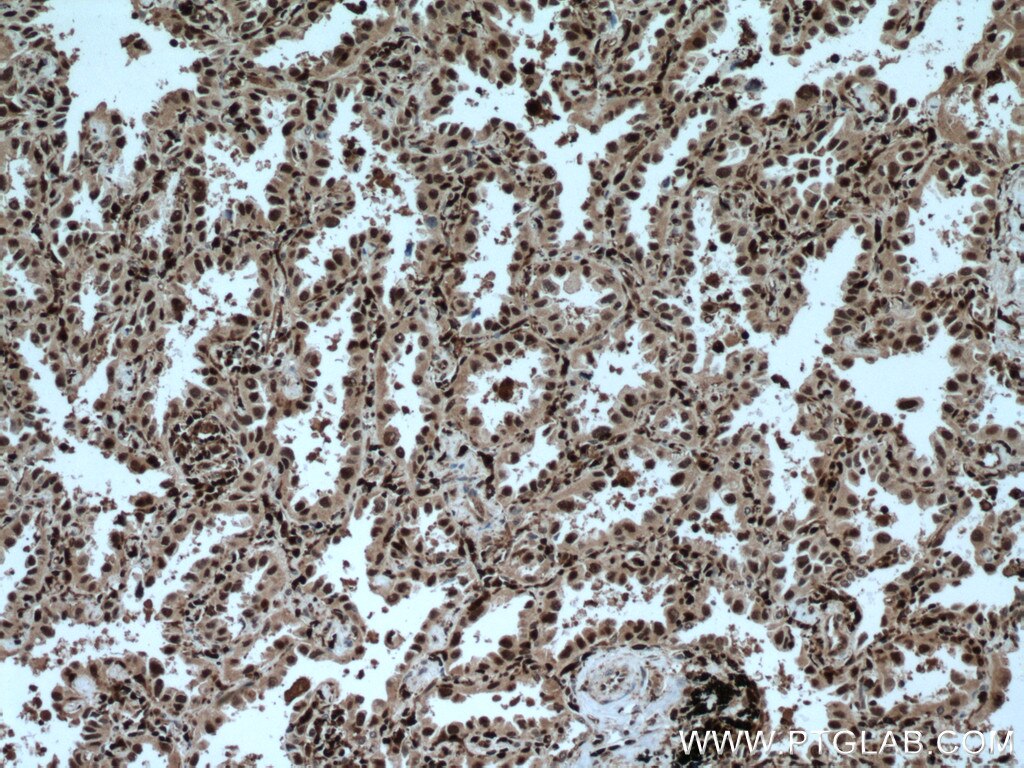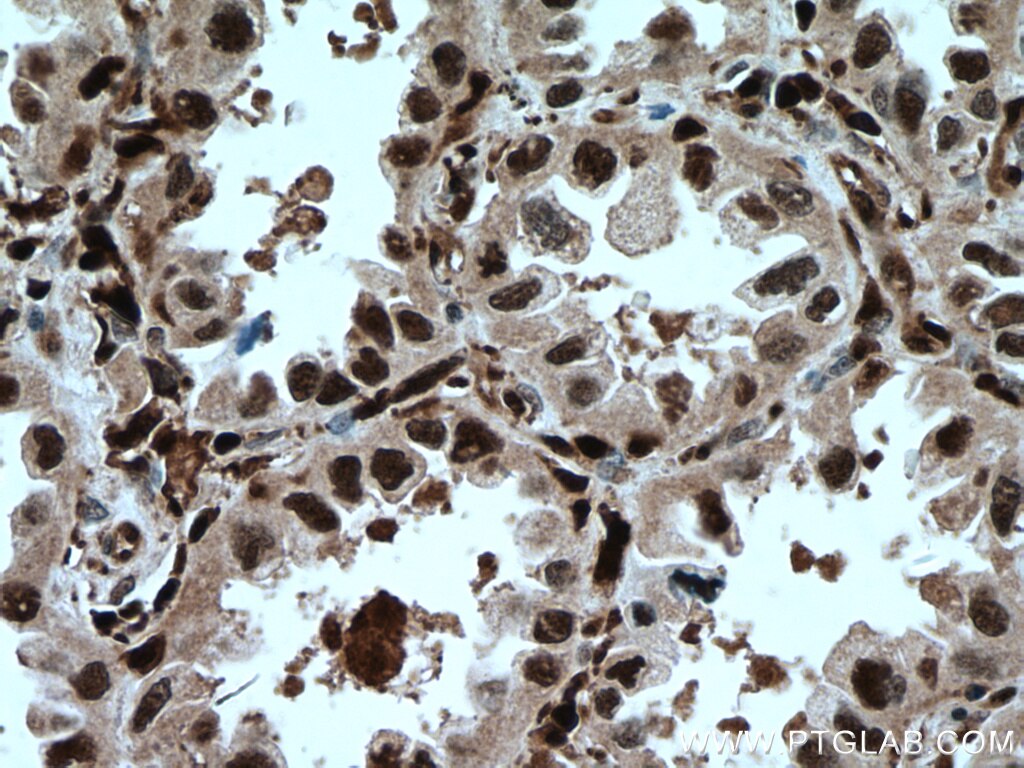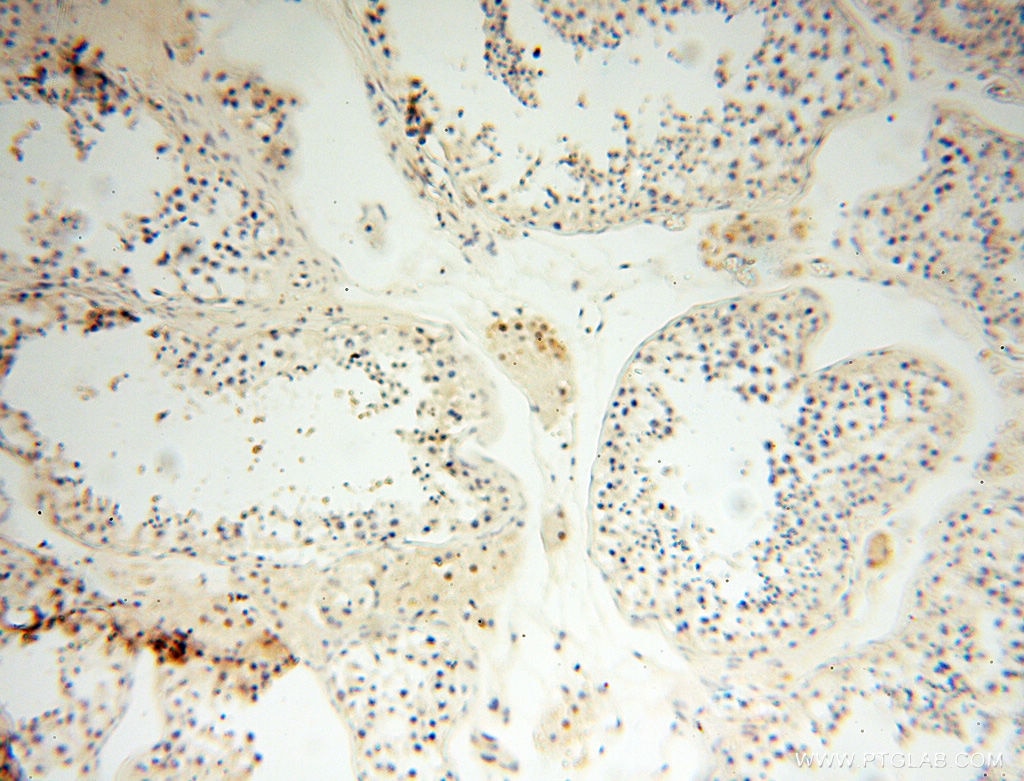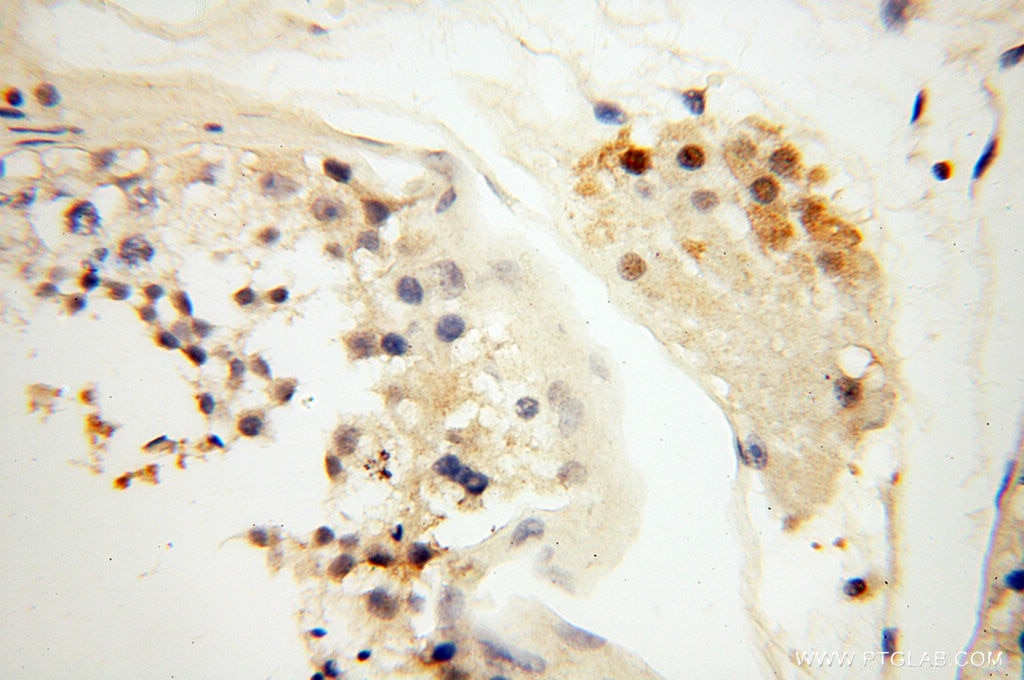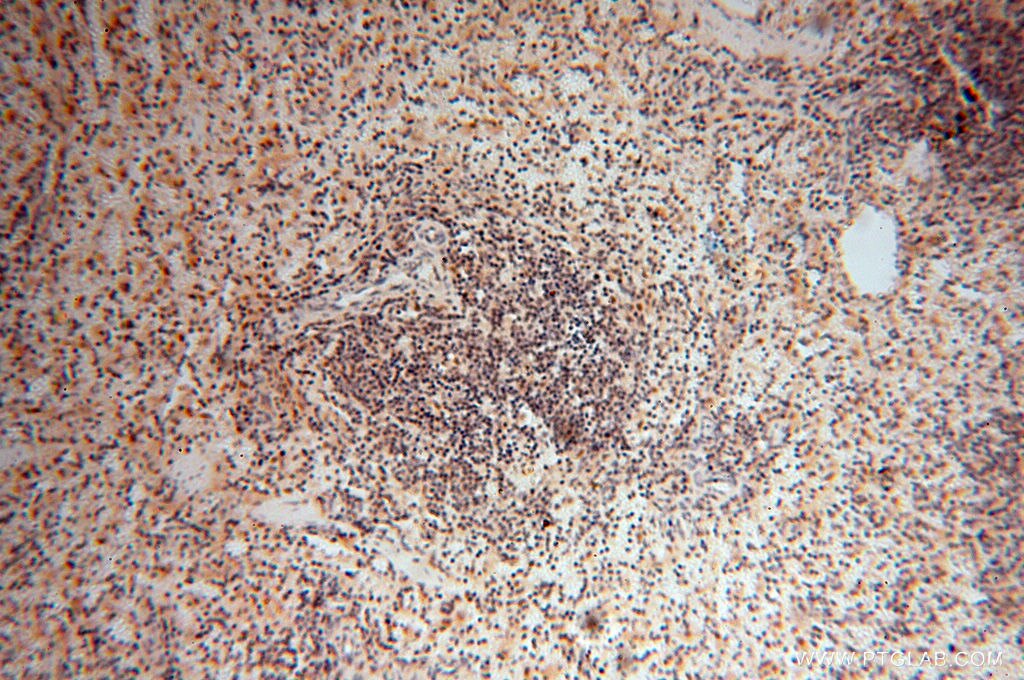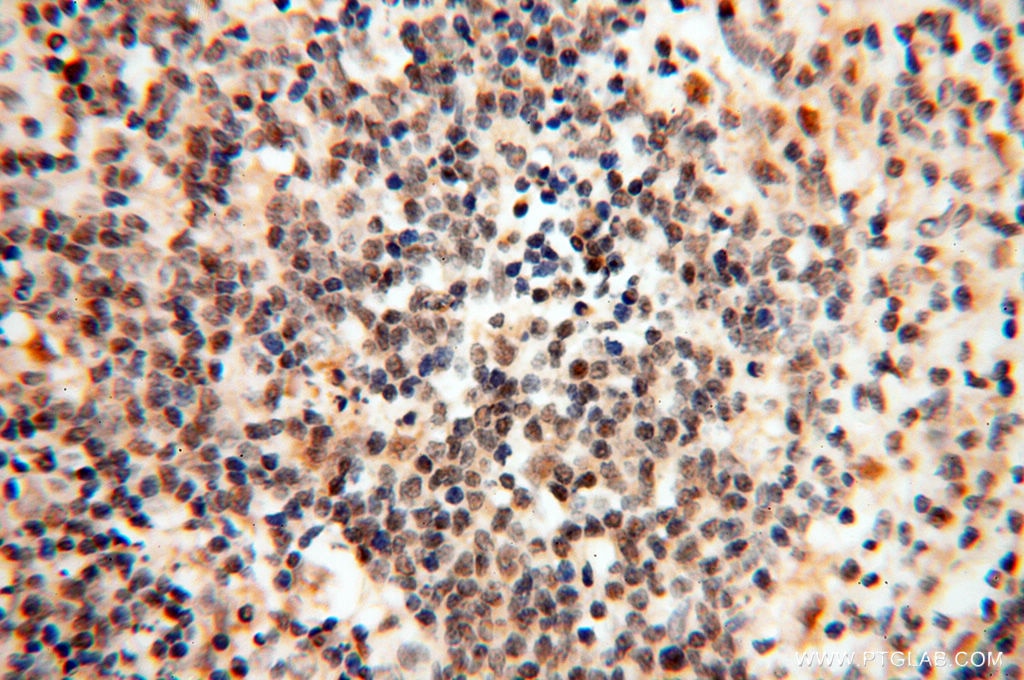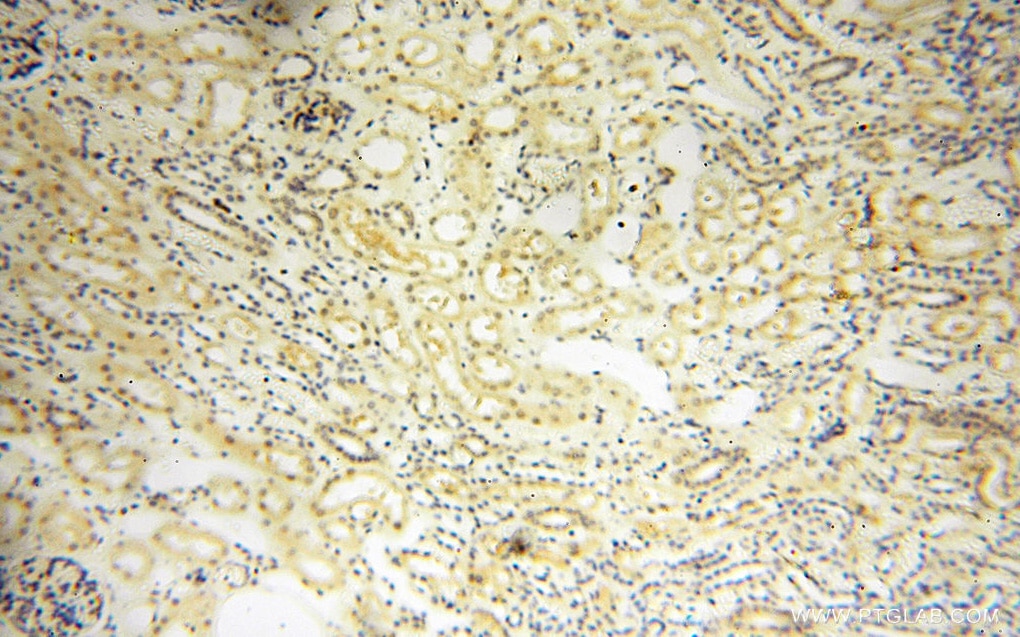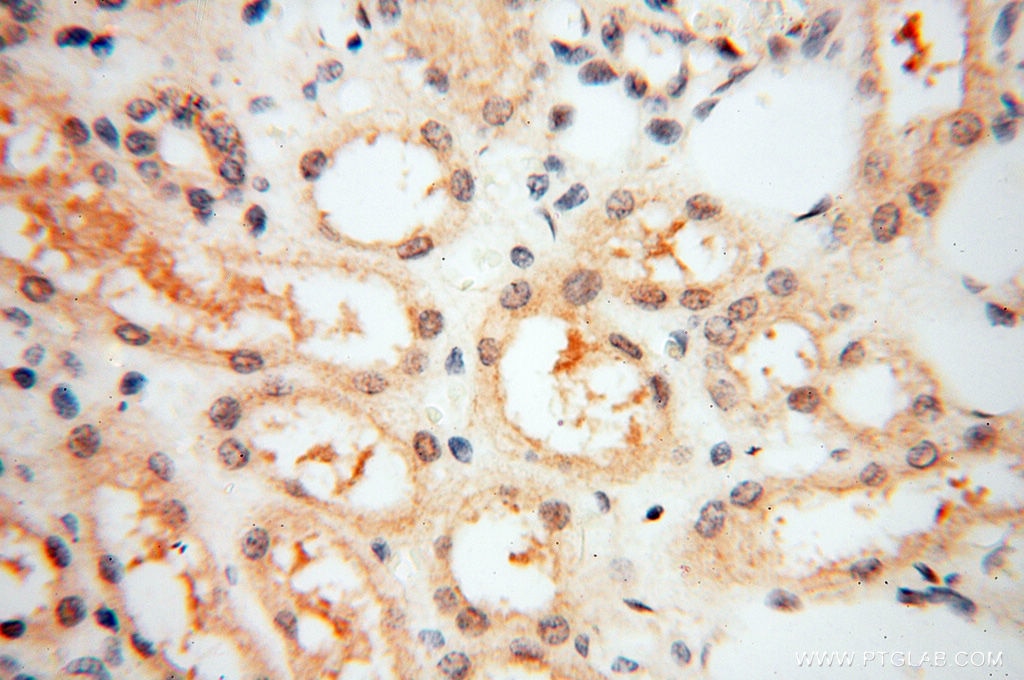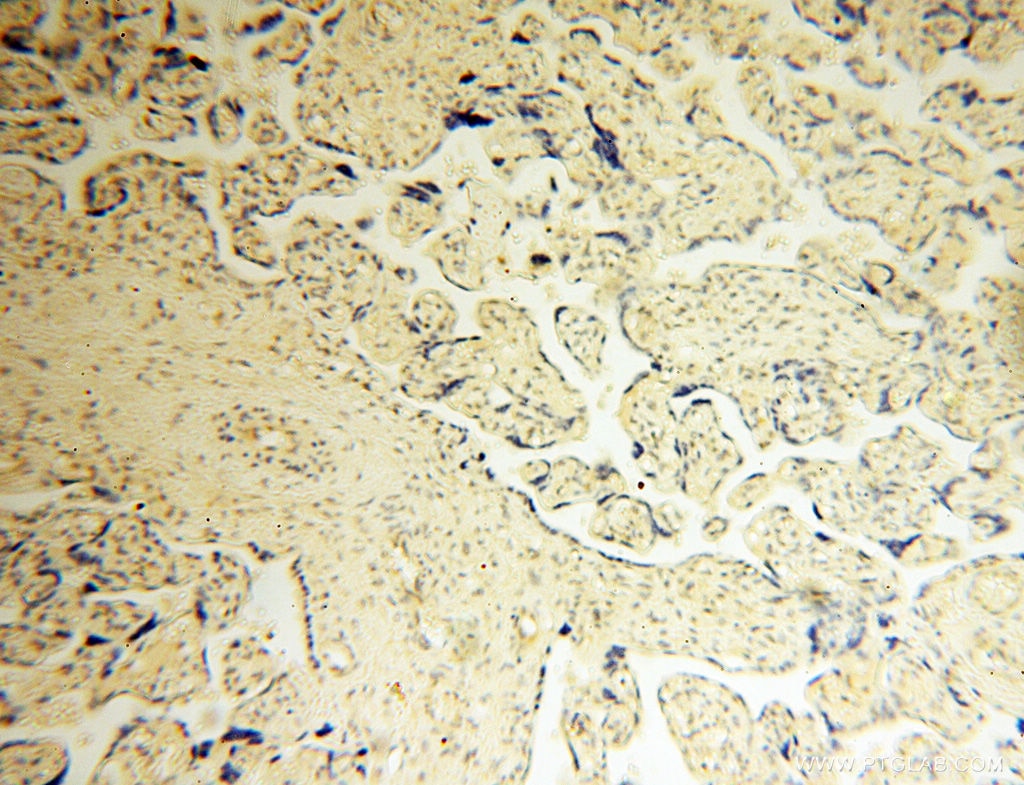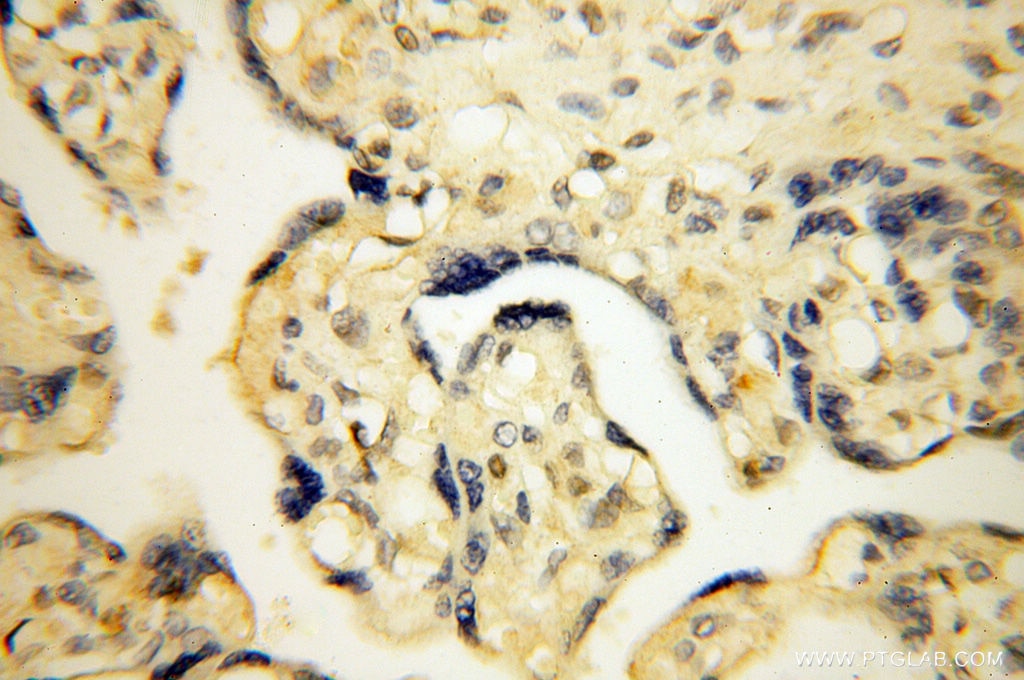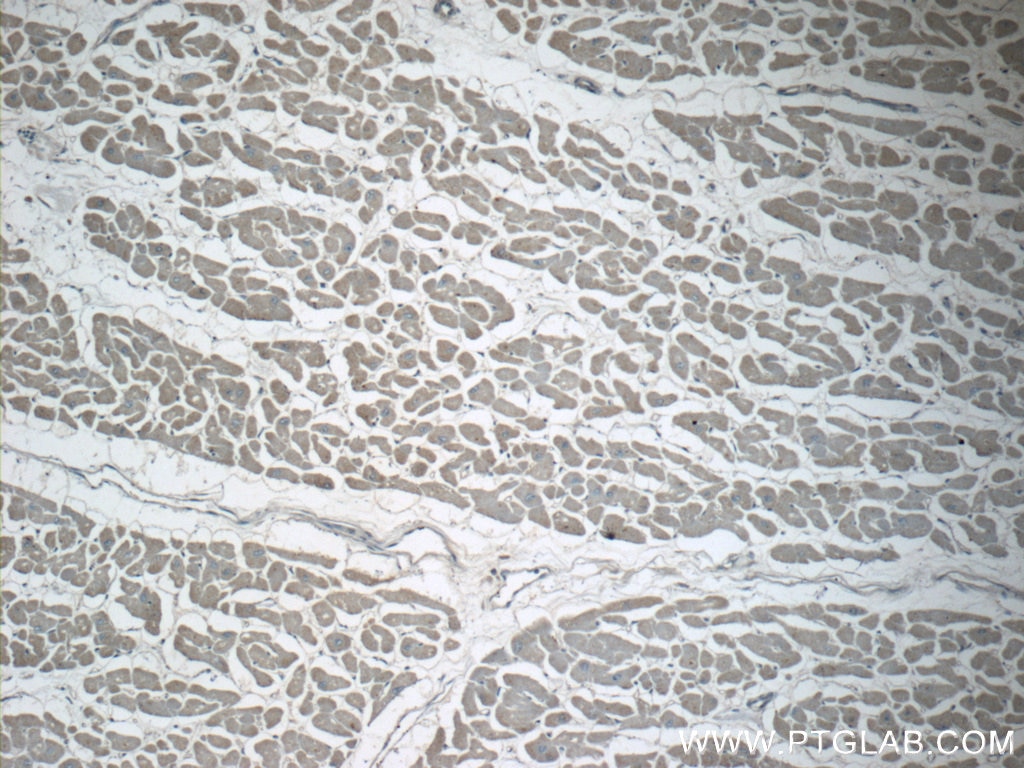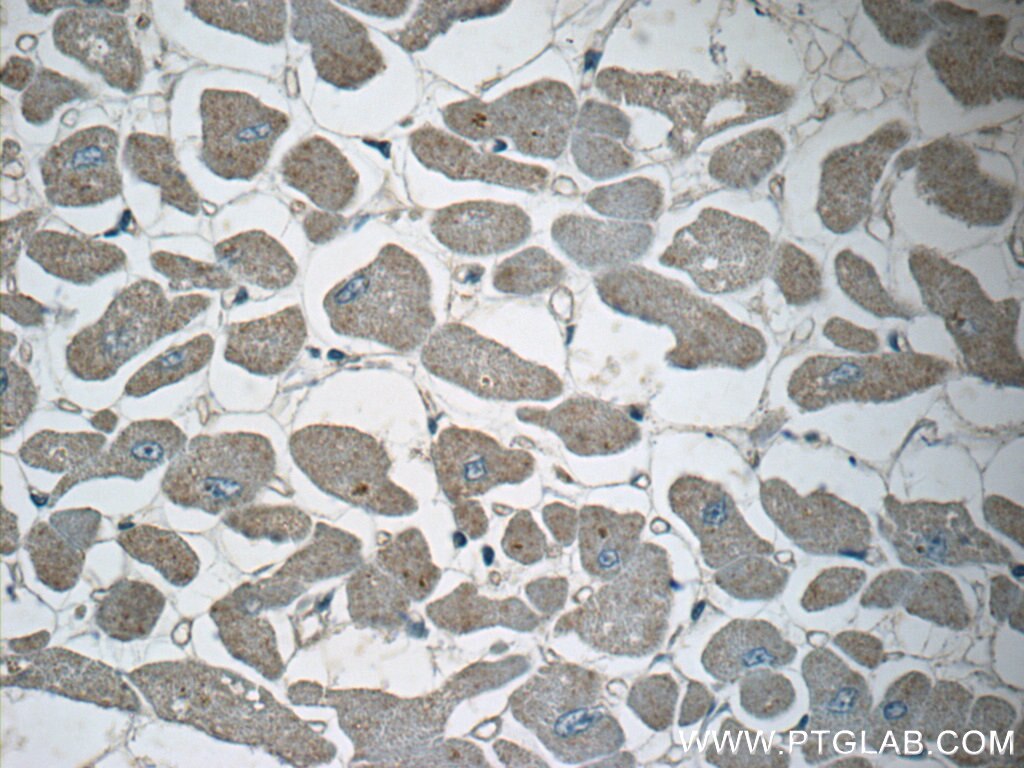- Phare
- Validé par KD/KO
Anticorps Polyclonal de lapin anti-GMFG
GMFG Polyclonal Antibody for WB, IP, IHC, ELISA
Hôte / Isotype
Lapin / IgG
Réactivité testée
Humain, rat, souris
Applications
WB, IP, IF, IHC, ELISA
Conjugaison
Non conjugué
N° de cat : 13625-1-AP
Synonymes
Galerie de données de validation
Applications testées
| Résultats positifs en WB | tissu cérébral de rat, tissu cardiaque humain, tissu placentaire de souris, tissu placentaire humain |
| Résultats positifs en IP | tissu splénique de souris |
| Résultats positifs en IHC | tissu de cancer du poumon humain, tissu cardiaque humain, tissu placentaire humain, tissu rénal humain, tissu splénique humain, tissu testiculaire humain il est suggéré de démasquer l'antigène avec un tampon de TE buffer pH 9.0; (*) À défaut, 'le démasquage de l'antigène peut être 'effectué avec un tampon citrate pH 6,0. |
Dilution recommandée
| Application | Dilution |
|---|---|
| Western Blot (WB) | WB : 1:500-1:1000 |
| Immunoprécipitation (IP) | IP : 0.5-4.0 ug for 1.0-3.0 mg of total protein lysate |
| Immunohistochimie (IHC) | IHC : 1:50-1:500 |
| It is recommended that this reagent should be titrated in each testing system to obtain optimal results. | |
| Sample-dependent, check data in validation data gallery | |
Applications publiées
| KD/KO | See 1 publications below |
| WB | See 5 publications below |
| IHC | See 4 publications below |
| IF | See 1 publications below |
Informations sur le produit
13625-1-AP cible GMFG dans les applications de WB, IP, IF, IHC, ELISA et montre une réactivité avec des échantillons Humain, rat, souris
| Réactivité | Humain, rat, souris |
| Réactivité citée | rat, Humain, souris |
| Hôte / Isotype | Lapin / IgG |
| Clonalité | Polyclonal |
| Type | Anticorps |
| Immunogène | GMFG Protéine recombinante Ag4538 |
| Nom complet | glia maturation factor, gamma |
| Masse moléculaire calculée | 141 aa, 17 kDa |
| Poids moléculaire observé | 17 kDa |
| Numéro d’acquisition GenBank | BC032819 |
| Symbole du gène | GMFG |
| Identification du gène (NCBI) | 9535 |
| Conjugaison | Non conjugué |
| Forme | Liquide |
| Méthode de purification | Purification par affinité contre l'antigène |
| Tampon de stockage | PBS avec azoture de sodium à 0,02 % et glycérol à 50 % pH 7,3 |
| Conditions de stockage | Stocker à -20°C. Stable pendant un an après l'expédition. L'aliquotage n'est pas nécessaire pour le stockage à -20oC Les 20ul contiennent 0,1% de BSA. |
Informations générales
GMFG, is a highly conserved brain-specific protein that belongs to the GMF subfamily of the larger Actin-binding protein ADF family. GMFG is preferentially expressed in blood vessel cells and immune cells and its ectopic expression enhances cellular functions such as tube-formation and migration in vitro. GMFG mediates neutrophil and T-lymphocyte migration via regulation of actin cytoskeletal reorganization. GMFG also acts as an intracellular regulator of stress-activated signal transduction by demonstrating activation of p38 MAP kinase and transcription factor NF-kB in astrocytes.
Protocole
| Product Specific Protocols | |
|---|---|
| WB protocol for GMFG antibody 13625-1-AP | Download protocol |
| IHC protocol for GMFG antibody 13625-1-AP | Download protocol |
| IP protocol for GMFG antibody 13625-1-AP | Download protocol |
| Standard Protocols | |
|---|---|
| Click here to view our Standard Protocols |
Publications
| Species | Application | Title |
|---|---|---|
Development Coronary veins determine the pattern of sympathetic innervation in the developing heart. | ||
Front Cell Dev Biol The Actin-Disassembly Protein Glia Maturation Factor γ Enhances Actin Remodeling and B Cell Antigen Receptor Signaling at the Immune Synapse.
| ||
Front Oncol GMFG Has Potential to Be a Novel Prognostic Marker and Related to Immune Infiltrates in Breast Cancer. | ||
Oncol Rep Expression of glia maturation factor γ is associated with colorectal cancer metastasis and its downregulation suppresses colorectal cancer cell migration and invasion in vitro. | ||
Genes (Basel) High Level of GMFG Correlated to Poor Clinical Outcome and Promoted Cell Migration and Invasion through EMT Pathway in Triple-Negative Breast Cancer | ||
Med Oncol RNF144A exerts tumor suppressor function in breast cancer through targeting YY1 for proteasomal degradation to downregulate GMFG expression. |
